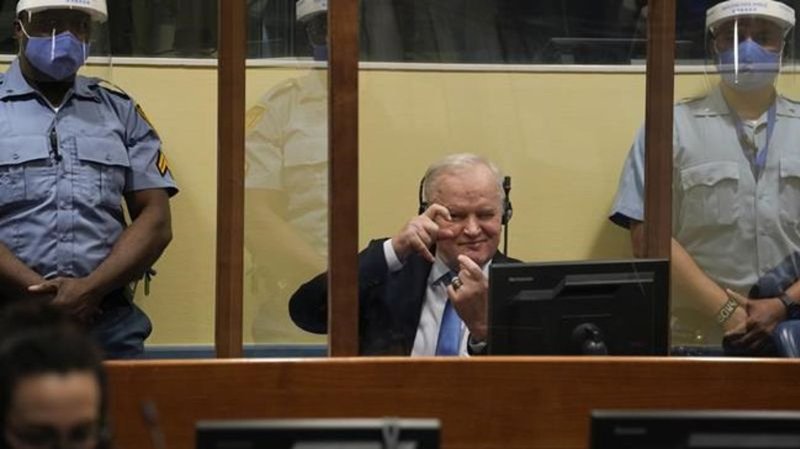
Serb military chief Ratko Mladic’s conviction upheld
THE HAGUE, Netherlands (AP) — U.N. appeals judges have upheld the convictions of former Bosnian Serb military chief Ratko Mladic for genocide and other offenses during Bosnia’s 1992-95 war and confirmed his life sentence.
The judgment Tuesday means the 79-year-old former general who terrorized Bosnia throughout the war will spend the rest of his life in prison. He is the last major figure from the conflict that ended more than a quarter century ago to face justice.
Presiding Judge Prisca Matimba Nyambe of Zambia said the court dismissed Mladic’s appeal “in its entirety” and affirmed his life sentence.
It also rejected an appeal by prosecutors against Mladic’s acquittal on one other count of genocide linked to ethnic purges early in the war.


